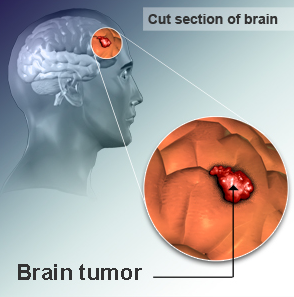Cellmid MK antibodies effective in brain cancer trials
Published 06-OCT-2016 13:32 P.M.
|
3 minute read
Hey! Looks like you have stumbled on the section of our website where we have archived articles from our old business model.
In 2019 the original founding team returned to run Next Investors, we changed our business model to only write about stocks we carefully research and are invested in for the long term.
The below articles were written under our previous business model. We have kept these articles online here for your reference.
Our new mission is to build a high performing ASX micro cap investment portfolio and share our research, analysis and investment strategy with our readers.
Click Here to View Latest Articles
Shares in Cellmid (ASX: CDY) were up approximately 30% at one stage on Wednesday after the company released promising results regarding the preclinical collaborative trials being undertaken in relation to its anti-midkine antibodies (MK antibodies).
The results demonstrated that MK antibodies produced by its wholly-owned subsidiary LYRAMID, are effective in improving tetrahydrocannabinol (THC) treatment response in animal models of cannabinoid resistant glioblastoma multiforme, one of the most common and aggressive forms of brain cancer.
CDY’s chief executive, Maria Halasz, highlighted the fact that there is currently no effective treatment for glioblastoma with tumours recurring even after the most intensive combination of surgery, radio and chemotherapy. Existing treatments only extend survival from three months to just over a year with very few glioblastoma patients surviving beyond three years.

CDY’s collaborators at Complutense University in Madrid have previously shown that high levels of MK were found to be associated with aggressive tumours and poor survival in glioblastoma patients.
While it is now widely accepted that medicinal cannabis has a number of benefits in cancer treatment including relieving pain and nausea and improving appetite, there is now sound scientific proof that distinct chemical components of cannabis called cannabinoids are potent anti-cancer agents with direct anti-tumour actions including induction of cancer cell death.
CDY noted that, as is the case with many cancer drugs, tumours can develop resistance to cannabinoids.
The promising aspect of this study is that MK antibodies used in combination with the cannabinoid THC inhibited tumour growth in gliomas that are resistant to THC.
The testing is still in its early stages, so investors should approach the company with caution, factor in all information and seek professional financial advice before making an investment decision.
Consequently, overcoming THC resistance highlights a potential treatment strategy using MK antibodies to enhance glioblastoma sensitivity to treatment, and provides a strong rationale for the continued clinical development of MK antibodies to treat brain cancer in combination with cannabinoids.
As highlighted by Halasz, the results of this study add to the already significant intellectual property assets ready for clinical development by LYRAMID, as well as providing additional collaboration opportunities with companies focused on improving their existing therapeutic approaches using cannabinoids in the treatment of glioblastoma multiforme.
Delving a little deeper into the intricate details of the testing procedure it becomes evident just how significant this development is.
To test whether the results using Glioma Initiating Cells (GICs) in cell culture conditions would translate into reduced in vivo tumour growth, Prof Velasco implanted the GICs into mice, and in an effort to mirror the disease in humans allowed the tumours to grow to a detectable size before starting treatment.
Mice with tumours were treated with MK antibody and THC treatments and tumour growth was tracked for a further 12 weeks. The tumours in mice that were administered THC alone continued to grow steadily while those treated with both THC and a form of midkine antibody grew much slower for the 12 week treatment period and were significantly smaller by the end of the experiment.
From this research and other data collated from in vitro testing it has now become evident that MK neutralisation with MK antibodies sensitises tumours to the anti-tumour action of THC.
General Information Only
This material has been prepared by Jason Price. Jason Price is an authorised representative (AR 000296877) of 62 Consulting Pty Limited (ABN 88 664 809 303) (AFSL 548573) (62C), and a Director of S3 Consortium Pty Ltd (trading as StocksDigital).
This material is general advice only and is not an offer for the purchase or sale of any financial product or service. The material is not intended to provide you with personal financial or tax advice and does not take into account your personal objectives, financial situation or needs. Although we believe that the material is correct, no warranty of accuracy, reliability or completeness is given, except for liability under statute which cannot be excluded. Please note that past performance may not be indicative of future performance and that no guarantee of performance, the return of capital or a particular rate of return is given by 62C, Jason Price, StocksDigital, any of their related body corporates or any other person. To the maximum extent possible, 62C, Jason Price, StocksDigital, their related body corporates or any other person do not accept any liability for any statement in this material.
Conflicts of Interest Notice
S3 and its associated entities may hold investments in companies featured in its articles, including through being paid in the securities of the companies we provide commentary on. We disclose the securities held in relation to a particular company that we provide commentary on. Refer to our Disclosure Policy for information on our self-imposed trading blackouts, hold conditions and de-risking (sell conditions) which seek to mitigate against any potential conflicts of interest.
Publication Notice and Disclaimer
The information contained in this article is current as at the publication date. At the time of publishing, the information contained in this article is based on sources which are available in the public domain that we consider to be reliable, and our own analysis of those sources. The views of the author may not reflect the views of the AFSL holder. Any decision by you to purchase securities in the companies featured in this article should be done so after you have sought your own independent professional advice regarding this information and made your own inquiries as to the validity of any information in this article.
Any forward-looking statements contained in this article are not guarantees or predictions of future performance, and involve known and unknown risks, uncertainties and other factors, many of which are beyond our control, and which may cause actual results or performance of companies featured to differ materially from those expressed in the statements contained in this article. S3 cannot and does not give any assurance that the results or performance expressed or implied by any forward-looking statements contained in this article will actually occur and readers are cautioned not to put undue reliance on forward-looking statements.
This article may include references to our past investing performance. Past performance is not a reliable indicator of our future investing performance.





